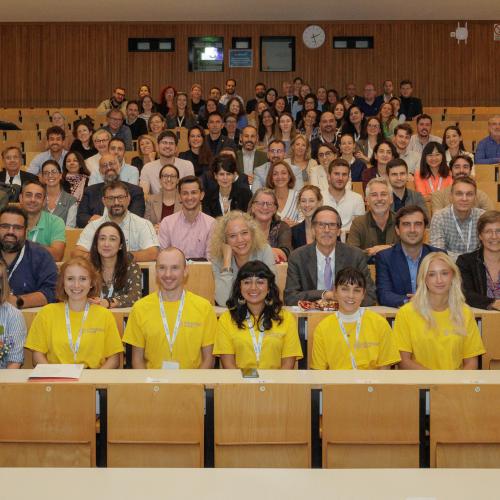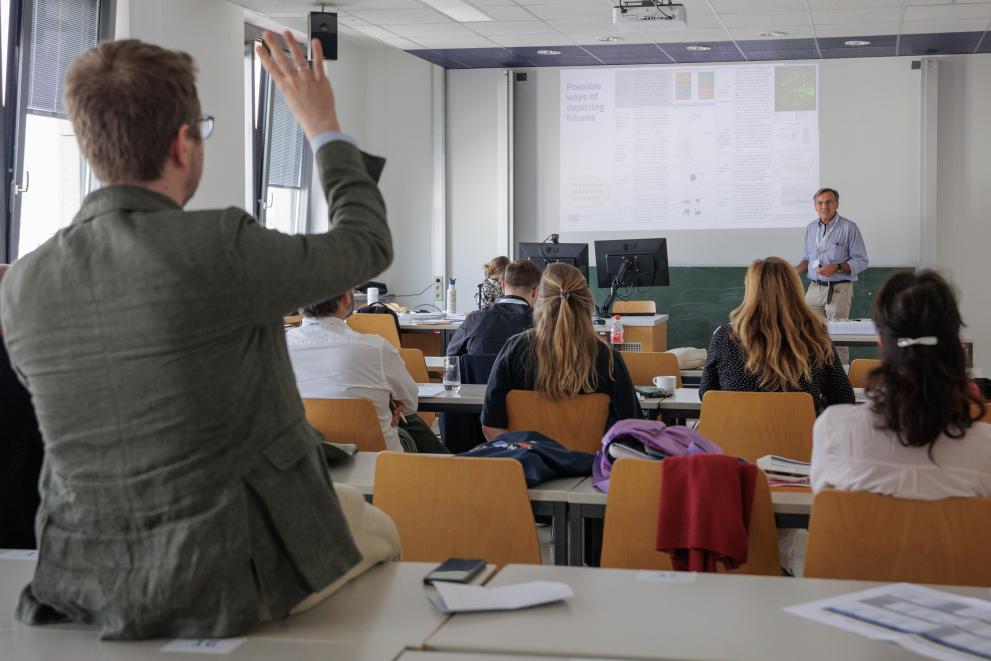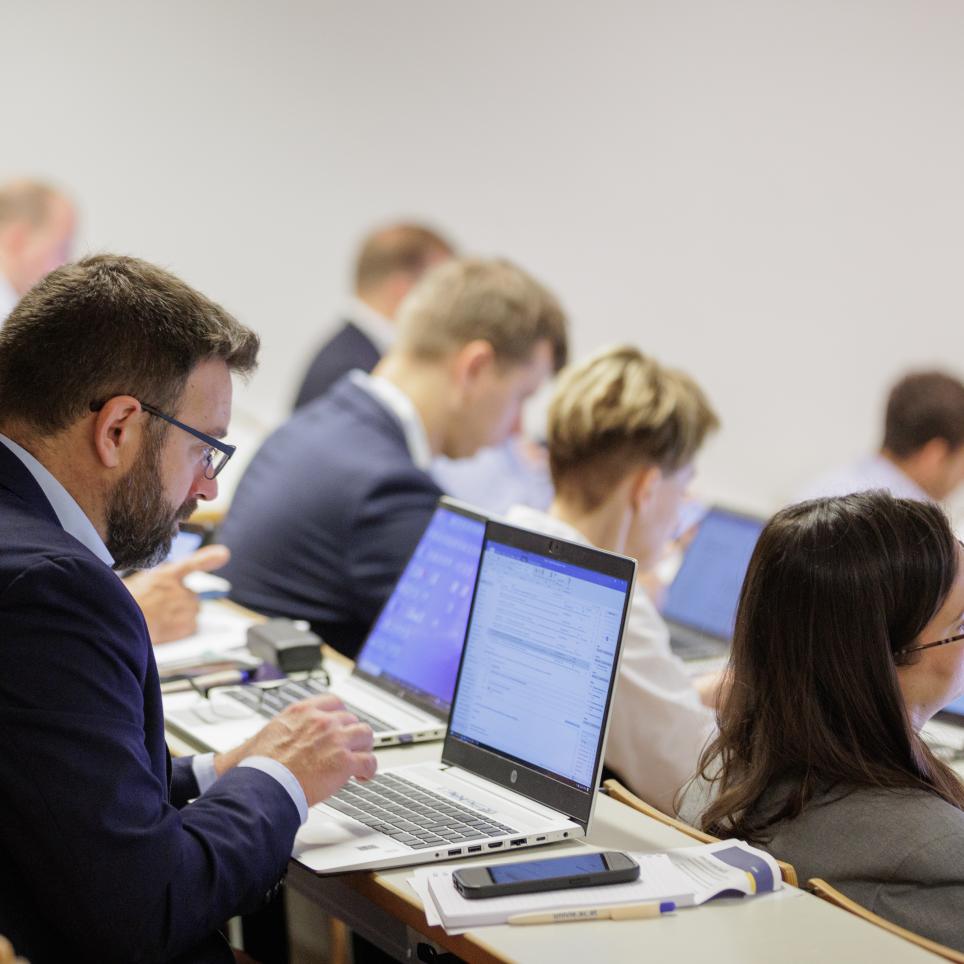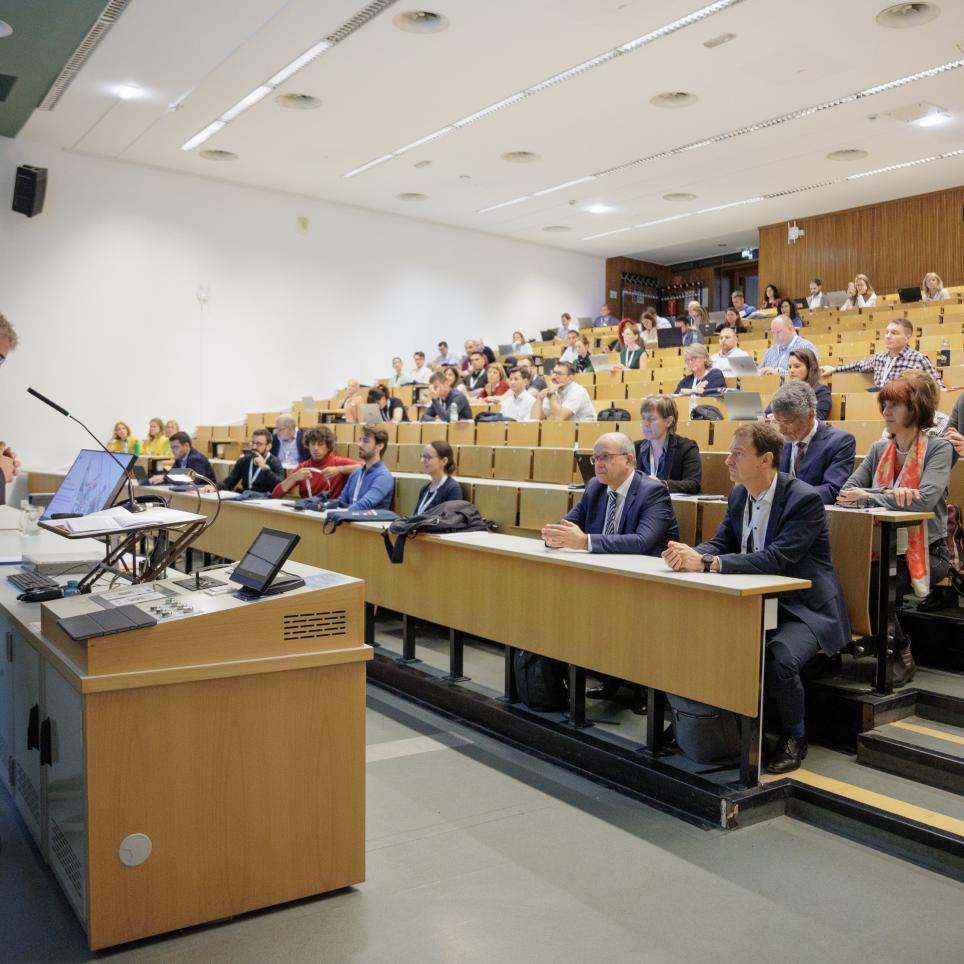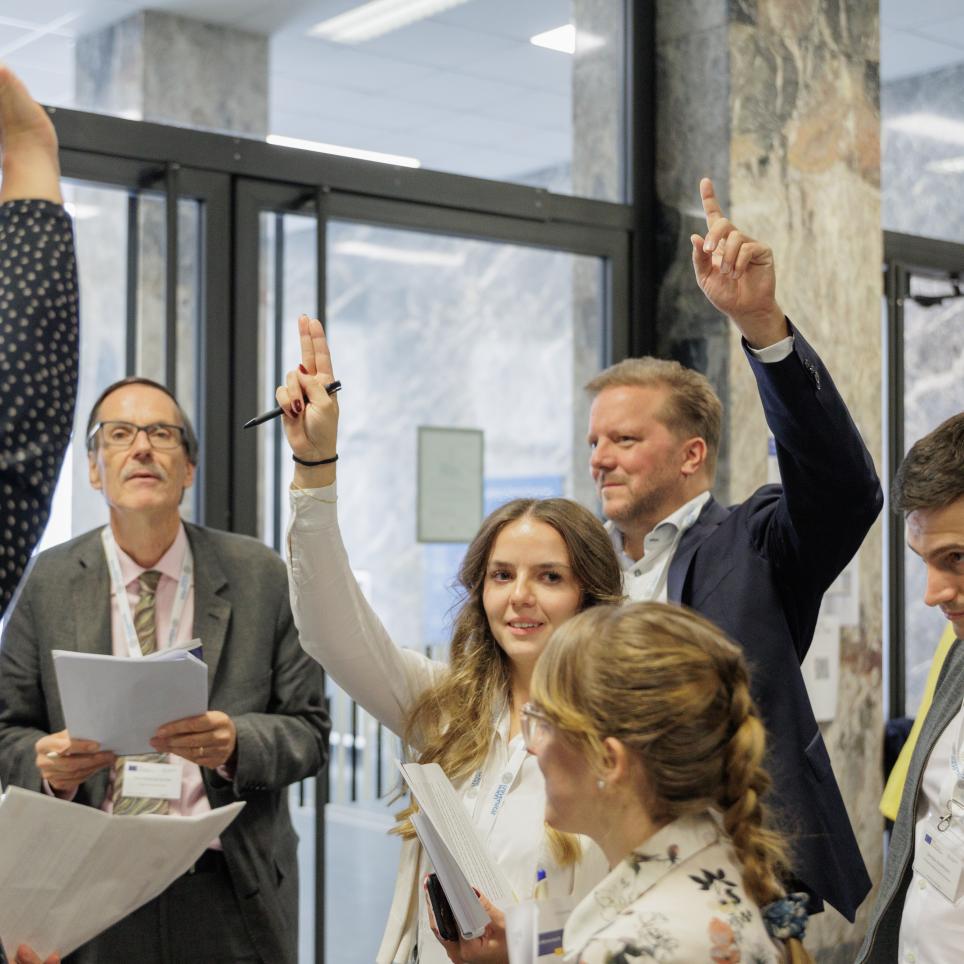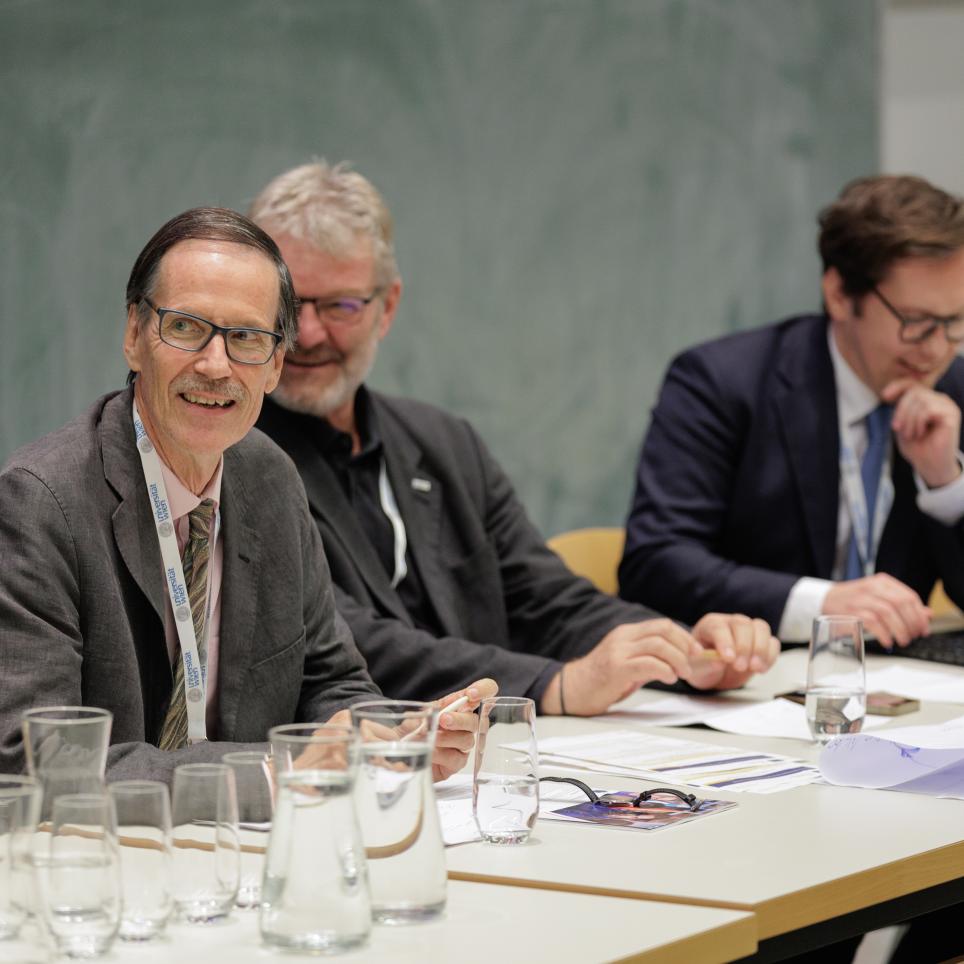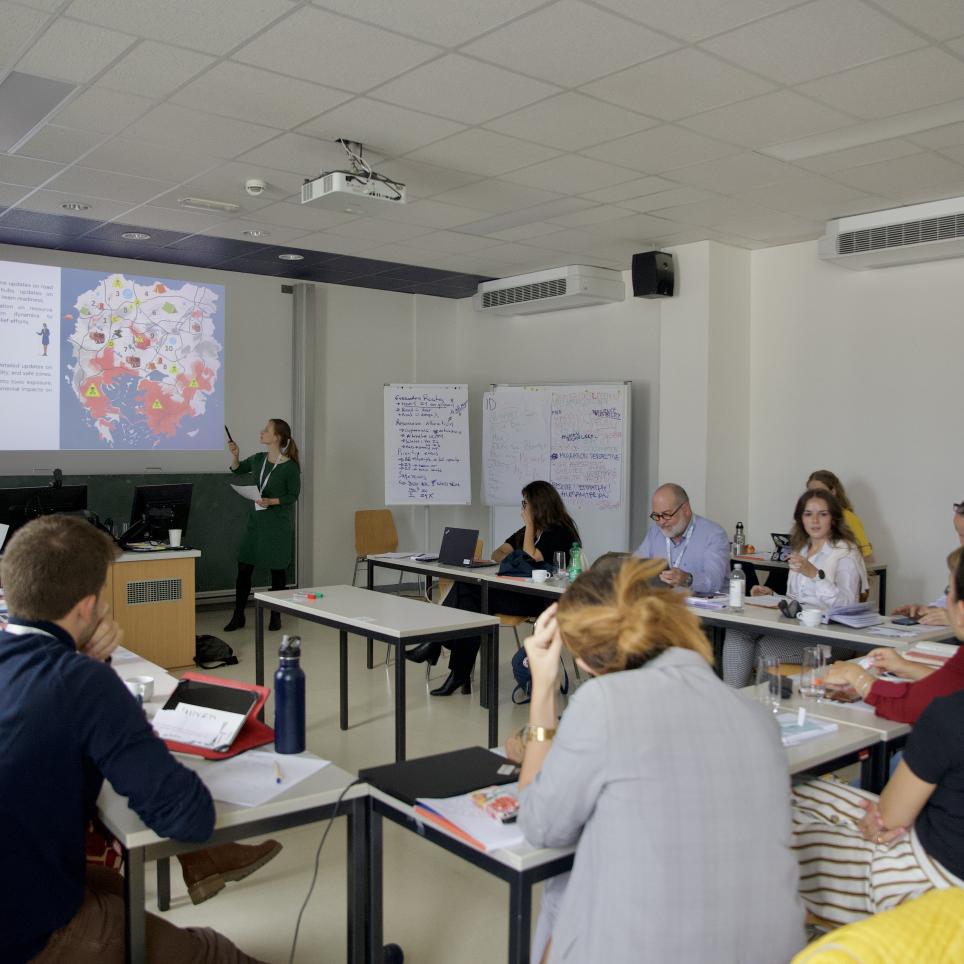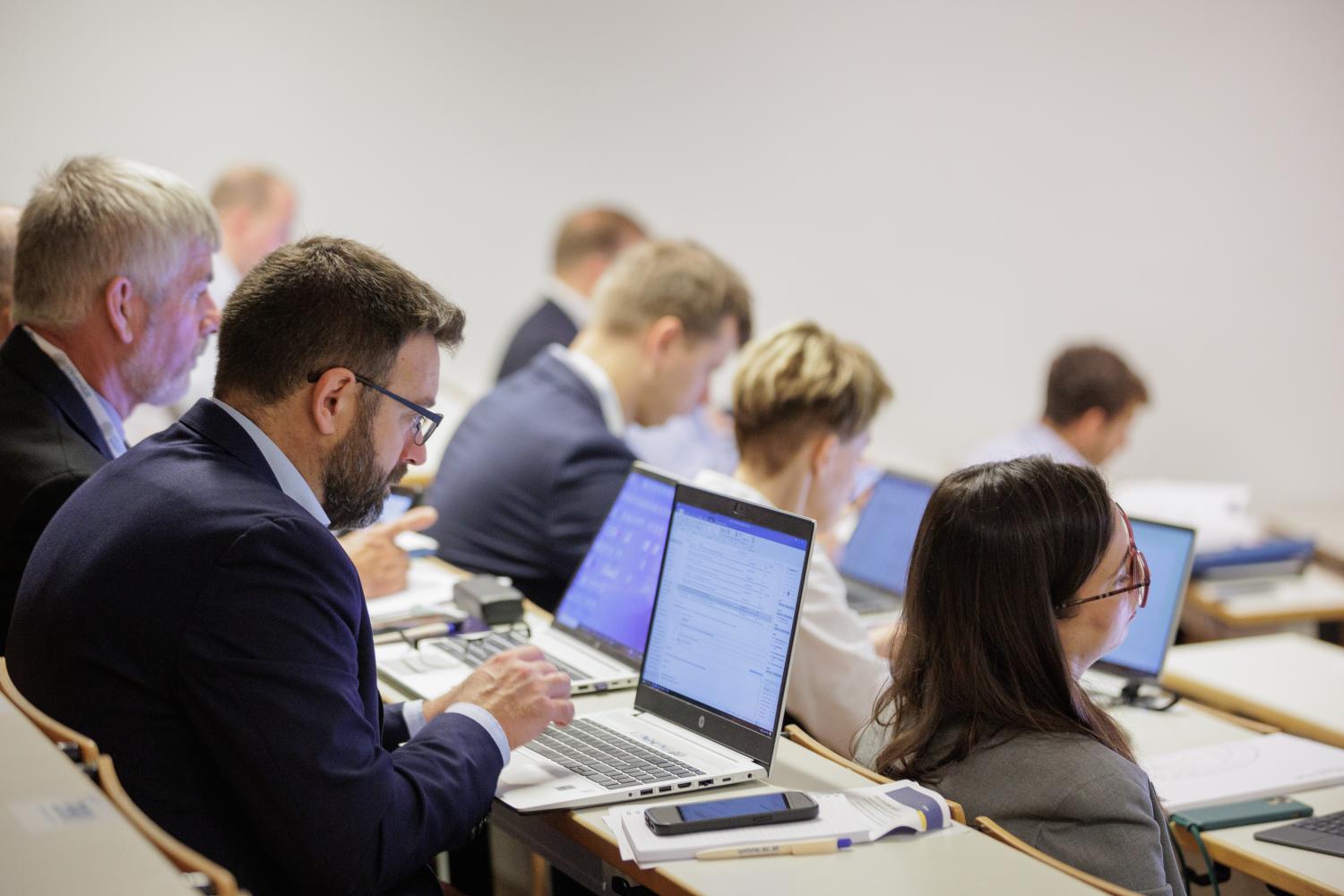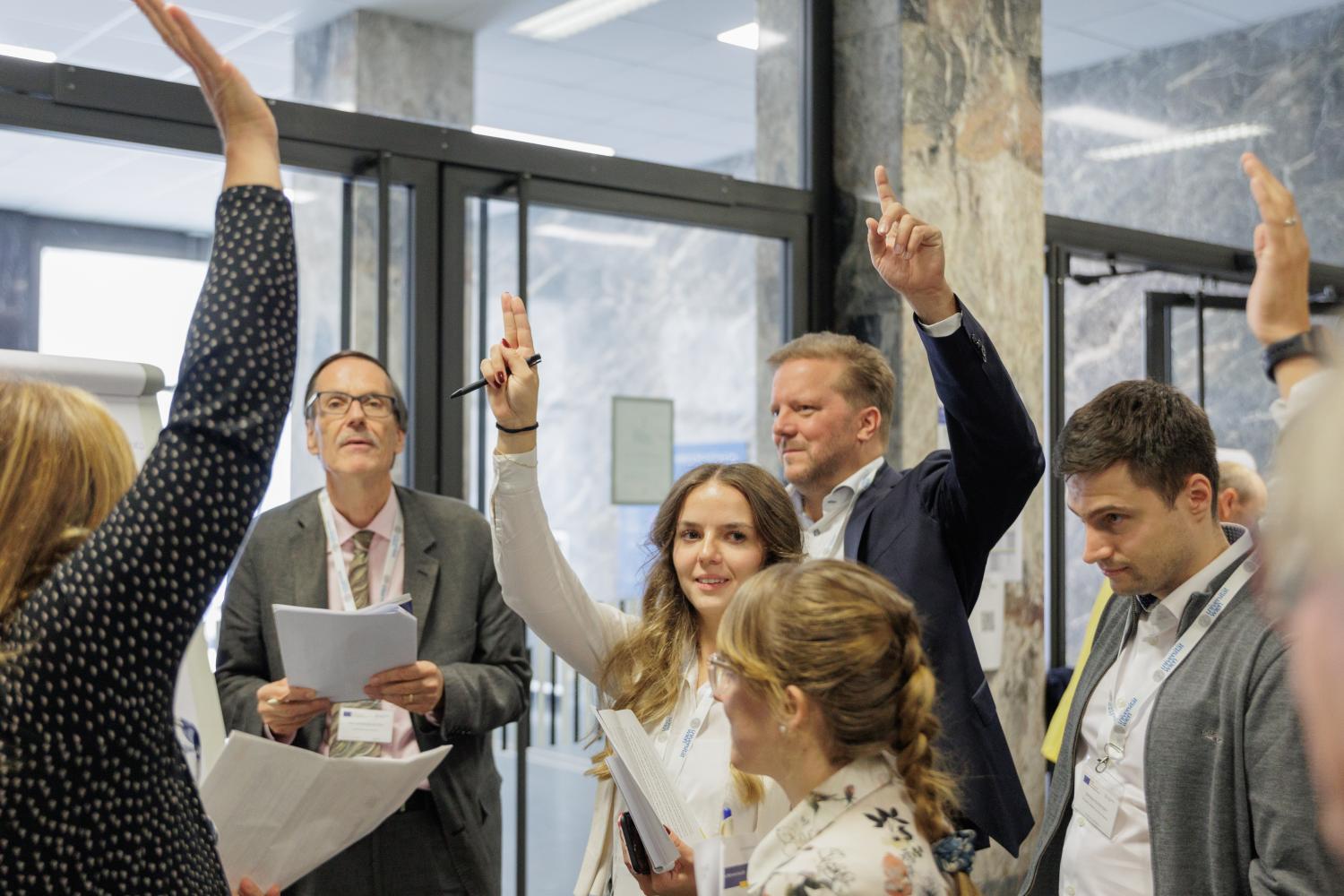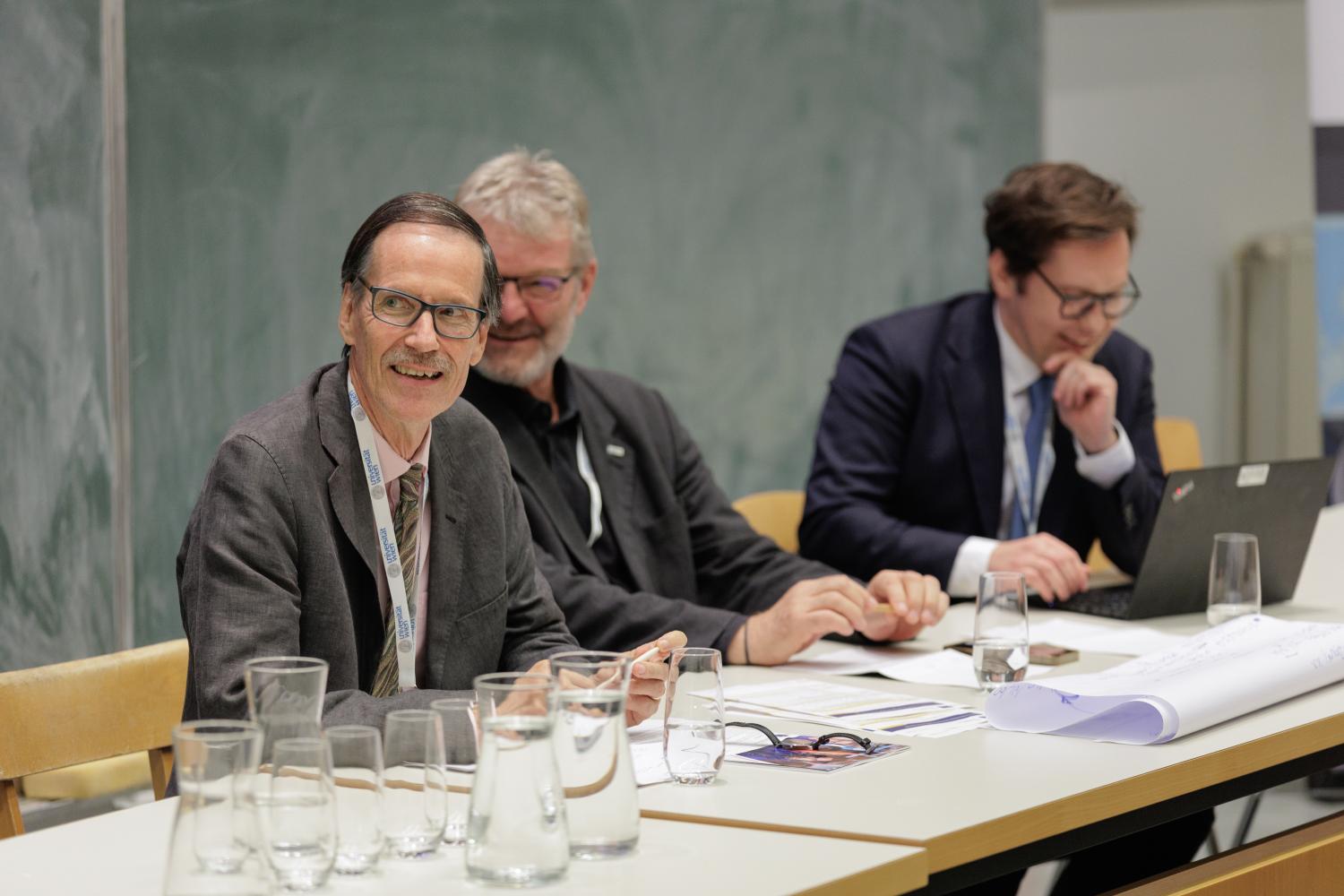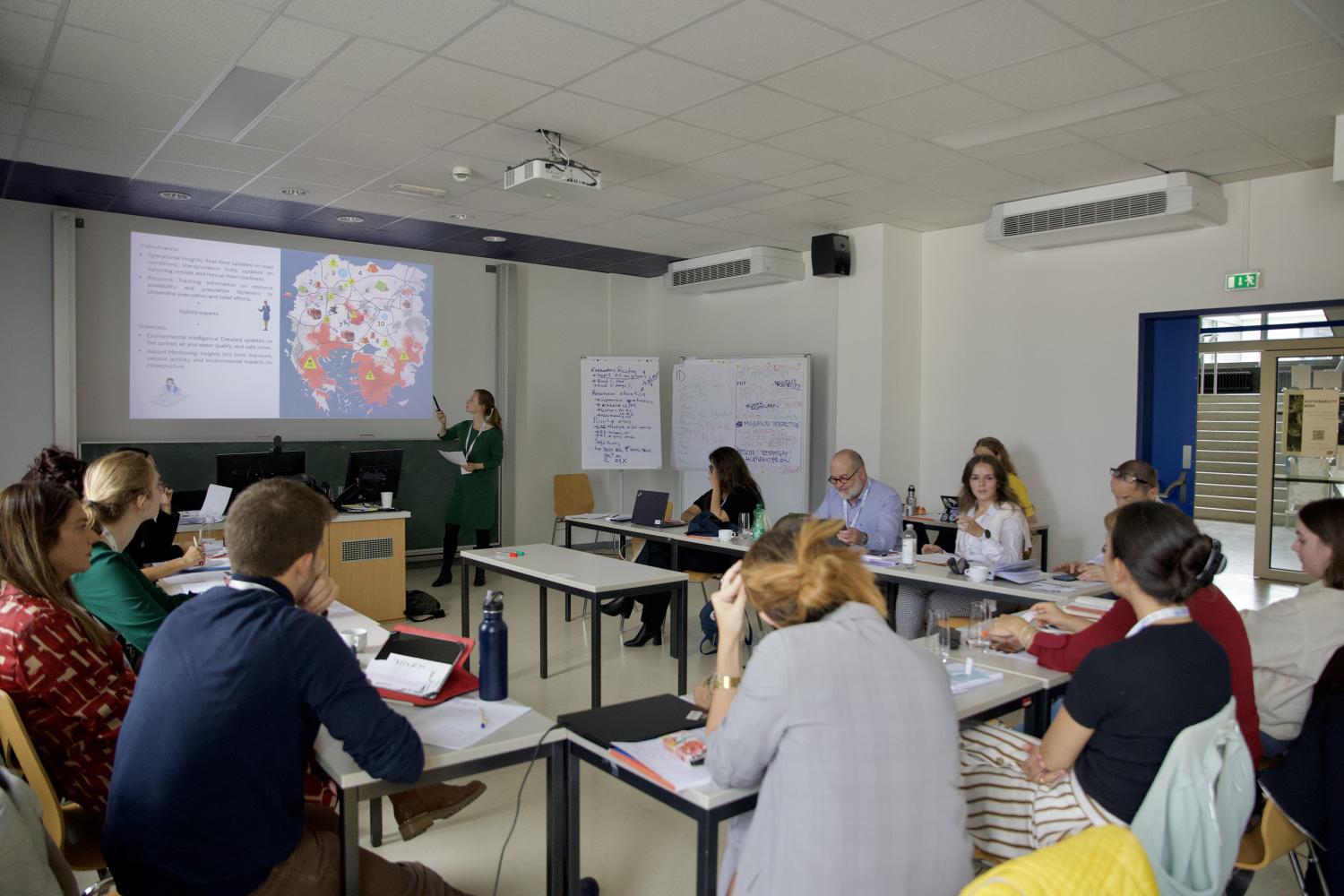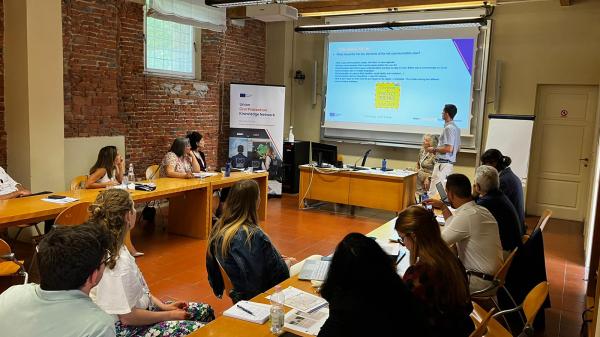The opening session was followed by a presentation by Chloe Hill, Policy Manager of the European Geosciences Union (EGU), on the need to ‘be bilingual in science and policy’ and how to overcome challenges in integrating evidence into policymaking . She emphasised the importance of using scientific evidence in decision-making, stating, “In a world facing increasingly complex challenges, the role of evidence and scientific advice in policymaking has never been more critical." Hill also encouraged scientists to communicate clearly, build strong networks, and work closely with policymakers to improve outcomes. She also emphasised the role of knowledge brokers in helping translate scientific findings into practical policy recommendations. "There are limited opportunities for two-way dialogues between scientists and policymakers. This conference is exceptional and a great opportunity," Hill remarked, capturing the essence of the summer school’s mission.
The Multiple Uses of Artificial Intelligence (AI) in Disaster Risk Management highighted how AI is revolutionising disaster response, enabling faster data analysis and real-time decision-making. Participants learned how AI enhances the speed and accuracy of data analysis, supports risk modelling, and enables real-time decision-making during crises. They discussed how AI can be integrated into existing policy frameworks and explored its applications in areas such as disaster forecasting and humanitarian crisis management.
Preparedness and Resilience for Managing the Systemic Risk of Compounding Disasters focused on understanding and preparing for systemic risks, particularly when disasters are interconnected. Participants worked through various case studies that illustrated how compounding disasters, like simultaneous natural and man-made events, create unique challenges. They discussed strategies to strengthen resilience and examined decision-making processes during such complex scenarios.
Population Displacement in Emergencies and the Role of International Disaster Law: This session equipped participants with the tools and knowledge needed to handle disaster-induced population displacement effectively. The class covered essential aspects like identifying different types of displacement, prioritising assistance for vulnerable groups, and developing long-term strategies for displaced populations. Participants worked together on a case study, applying their knowledge to real-world scenarios and collaboratively developing solutions. This gave them an understanding of the legal frameworks and practical challenges in protecting displaced communities.
Economics for Investing in Disaster Prevention and Preparedness delved into he financial side of disaster risk management, examining how strategic investments in prevention and preparedness can lead to significant long-term benefits. Participants explored public finance management, budgetary constraints, and cost-benefit analyses. Discussions also focused on how investing in disaster prevention could not only save costs in the long run but also improve overall resilience and recovery in affected regions.
Polycrises and Applying Foresight in Disaster Risk Management: in this masterclass, foresight methods and systems thinking took centre stage. Participants were taught to anticipate and address polycrises—situations where multiple crises overlap and amplify each other’s effects. The masterclass provided tools to better foresee and mitigate emerging threats by considering a broad spectrum of risks, encouraging a proactive approach to disaster management.
Can Hybrid Experts Help Bridge the Science-Policy Gap? explored the roles of scientists, decision-makers, and hybrid experts—professionals with expertise in both research and policymaking. Participants were tasked with interpreting each of the three roles discussing the actions they would take, the information they would require, and the analyses they could provide in each role. This hands-on approach allowed them to experience the different challenges each role faces, fostering a better understanding of how these roles interact and support each other in shaping effective disaster policies.
Cyber Security Incidents, Blackouts, and Energy Disruptions as Emerging Disasters tackled the growing threat of cyber-attacks and energy disruptions, providing participants with insights into how to handle these emerging forms of disaster. The interactive format featured a realistic tabletop exercise where participants worked through a simulated crisis scenario. This exercise gave them a practical understanding of the complexities involved in responding to such incidents and the importance of coordinating physical and cyber response efforts.
The event concluded with a reflective closing session, where participants summarised the key takeaways from their masterclasses and emphasised the importance of continued collaboration between scientists, policy makers, and practitioners to build more resilient communities across Europe.
As the field of disaster risk management continues to evolve, the Evidence for Policy in Disaster Risk Management Summer School remains a crucial platform for fostering dialogue and improving the integration of science into policy. The 2024 edition built on the successes of previous years, highlighting the ongoing need for collaborative approaches to address the increasing complexities of disaster management.
